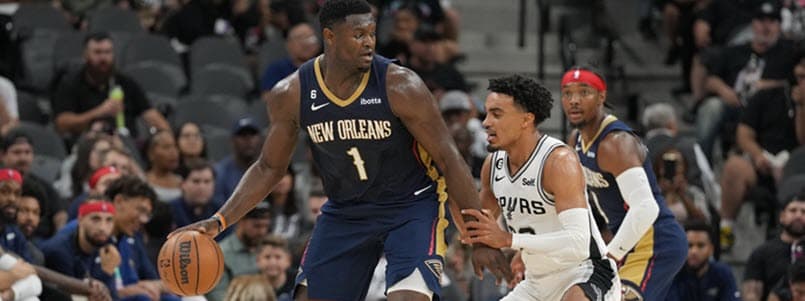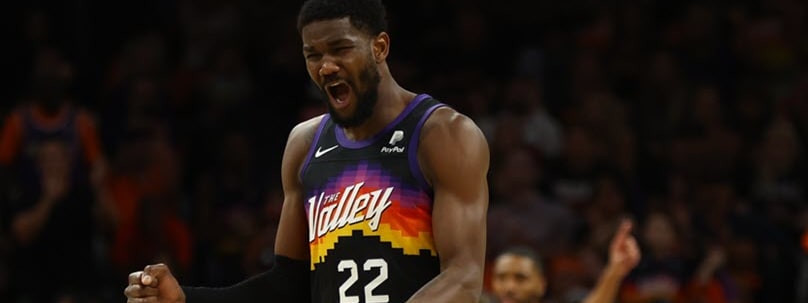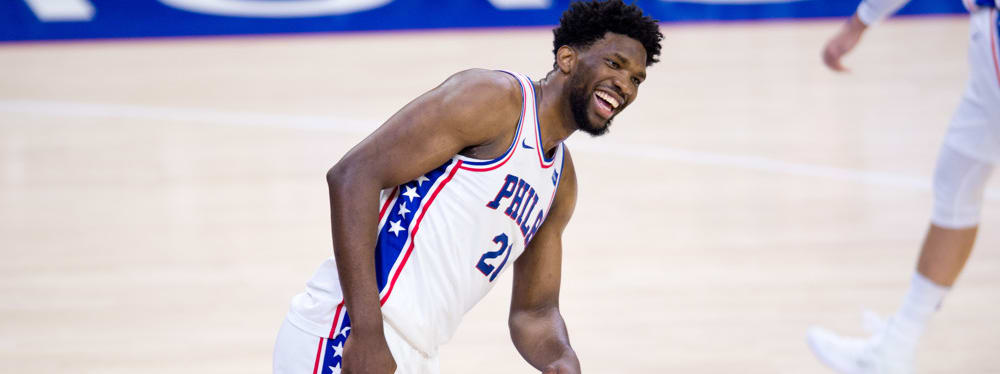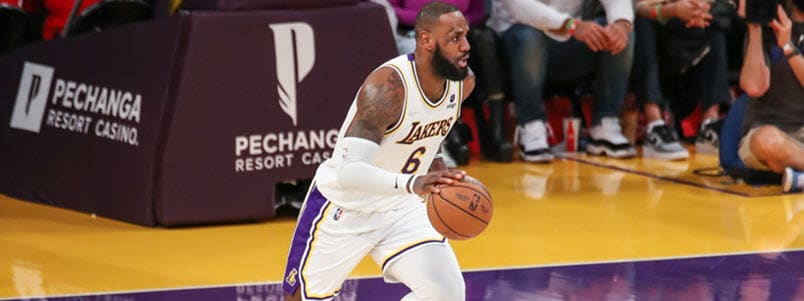Recent RotoWire Articles Featuring Gorgui Dieng
See More
Having bounced around a bit over the past few seasons, Dieng now finds himself back in San Antonio. Unfortunately, the 2021-22 season was a disaster for the veteran, logging just 8.4 minutes per game and ending as the 411th ranked player. Despite a somewhat fantasy-friendly game, Dieng does not fit the Spurs' current timeline, so while he will provide an excellent locker room presence, he may not feature in the rotation on a nightly basis. Barring a miracle, he can be safely ignored, even in deeper formats.
Dieng posted 6.8 points and 3.7 rebounds over 14.5 minutes as he split time with the Grizzlies and Spurs last season. After a relatively healthy start to his career, the 6-foot-10 center played in just 38 games during the 2020-21 campaign. He finished well outside the top 200 of overall fantasy scorers. However, per 36 minutes, he has finished inside the top 30 of fantasy producers in each of the last two seasons. While that may project him to see more minutes or an increased role, it is unlikely that the 31-year-old will garner any more than 15 minutes per game with his new team. The Hawks currently have Clint Capela and John Collins -- who both played 30-plus minutes per game last season -- manning their frontcourt for the foreseeable future. The 2013 first-round pick has attempted around two three-pointers per game in each of the last two seasons and shot 35.5 percent from downtown during the 2019-20 seasons and 42.9 percent last season. He may be an option to bring off the bench to space the floor for Trae Young to orchestrate the offense, but Dieng will most likely only be spelling Capela while Onyeka Okongwu rehabs from surgery to repair his torn labrum.
Dieng started in 17 of his 46 games for the Timberwolves (after starting a combined two in the previous two seasons) before being traded to the Grizzlies, where he appeared exclusively off the bench. His role actually increased slightly in Memphis, as his minutes per game jumped from 16.9 to 18.7. His stat line didn't change too much after the move outside of his three-point percentage, which cratered from 38.3 percent to 25.0, though the latter came on just 32 total attempts. On the season as a whole, however, Dieng's improved effectiveness from downtown was the most encouraging part of his season, offering hope that he could be developing into something slightly more than a standard-issue backup center. His 35.5-percent mark with both teams combined beat the 33.2 combined mark from his first six seasons, and it came on far greater volume, as his 2.4 attempts per game shattered his previous career high of 0.8. A decent defensive big man who can stretch the floor is quite a useful role player, so -- if the games stick -- there's at least a pathway for Dieng to advance beyond his 15.9 minutes and 6.5 points per game from the last three campaigns.
Dieng has seen his workload decrease each of the past two seasons as Karl-Anthony Towns' backup at center. Last season, he matched his career low for minutes per game (13.6) while averaging only 6.4 points and 4.1 rebounds. Entering his age 30 season, Dieng will have more competition than ever, as the Timberwolves brought in the likes of Jordan Bell and Noah Vonleh to potentially see time in the frontcourt. Dieng's fantasy value was already low, but it's possible it reaches new depths in 2019-20. Even in deep leagues, it's probably best to avoid the Louisville product.
Dieng was one of the bigger Fantasy disappointments last season, but it wasn't necessarily his fault. The Wolves' acquisition of Taj Gibson essentially rendered Dieng irrelevant in most standard formats, as his playing time fell off of a cliff. Dieng's workload dropped from 32.4 minutes per game two seasons ago to just 16.9 in 2017-18. Ironically enough, per 36 minutes, Dieng's scoring and rebounding actually increased, though his efficiency took a dive, particularly from beyond the arc, where he shot just 31.1 percent after hitting better than 37 percent of his threes a season ago. Those expecting a bounceback in 2018-19 aren't likely to be rewarded, as Gibson is expected to remain the starter at power forward, as was the case for all 82 games in 2017-18. Even if the veteran's minutes are more closely managed, Dieng will also have to compete with free agent signee Anthony Tolliver, who's coming off of by far the best three-point shooting season (43.6% 3PT) of his career.
Dieng had another solid year during the 2016-17 campaign, his fourth season, though didn’t show significant improvement. He averaged 10.0 points, 7.9 rebounds, 1.9 assists, 1.2 blocks and 1.1 steals across 32.4 minutes per game – all of which are a decrease from the 2015-16 season per 36 minutes. He also shot 50.2 percent from the field and went 16-of-43 (37.2 percent) from beyond the arc. Once again, he’ll likely be the odd man out on offense during the upcoming season, with Jeff Teague, Jimmy Butler, Andrew Wiggins and Karl-Anthony Towns making up the other members of the (presumed) starting five. The Timberwolves also brought in Taj Gibson, a veteran power forward, over the summer. While Dieng started all 82 games last season, he may have to battle Gibson for that role during training camp. All that in mind, it seems doubtful that Dieng’s production will rise during 2017-18, and his Fantasy stock will probably take a dip overall. While he may be deserving of a Fantasy roster spot, letting someone else take the gamble could be the right way to go, as Dieng’s floor is much more significant than his ceiling.
Though he started only 39 of 82 games last season, Dieng was a de facto member of the Wolves’ top unit, outpacing the team’s other starting power forward, Kevin Garnett, by 12.5 minutes per game. Dieng’s court time was actually down from a year earlier, but he was just as effective while he was out there, averaging 10.1 points, 7.1 rebounds, 1.7 assists, 1.2 blocks and 1.1 steals per game. Additionally, he combined with rookie Karl-Anthony Towns to form one of the league’s best free-throw shooting frontcourt tandems, with Dieng converting on 82.7 percent of his attempts from the line. The 26-year-old has made great progress with his expanding his shooting range since getting drafted into the NBA out of Louisville in 2013 with the characterization of a raw, yet projectable player, and he’s beginning to put all the tools together. Heading into fall training camp, Garnett and another former starting big man Nikola Pekovic are still around, but both are uncertain to remain on the roster when the season starts, with Garnett pondering retirement and Pekovic a candidate to get waived while he languishes in his recovery from an Achilles injury. Free-agent pickups Jordan Hill and Cole Aldrich could end up replacing those two veterans in the rotation, but despite the existing frontcourt clutter, Dieng remains the top candidate to pick up the bulk of the minutes at power forward. In fact, given new coach Tom Thibodeau’s historical tendency to deploy tight rotations, Dieng could see his minutes jump over 30 per game, which would be a boon to his fantasy value.
Before there was Karl-Anthony Towns, there was Dieng, the prospect Minnesota fans clamored to see more of on the court. That wish was granted in 2014-15, with Dieng playing 30 minutes per game over the course of his 73 game appearances last season. His averages of 9.7 points, 8.3 rebounds, 2.0 assists, 1.0 steal, and 1.7 blocks point to fantasy utility, but Dieng's upside will be capped by his lack of scoring and the heavy competition he will face for minutes with the arrival of Towns and the return of Nikola Pekovic. In the likely scenario, Dieng remains a solid deep league contributor while seeing minutes backing up both Towns and Kevin Garnett. Even in the most optimistic scenario, it's unlikely that Dieng again bursts onto the standard league scene, but if he is given a high-volume of minutes, he can be useful to those formats that reward double-doubles, as well as to owners who seek help in rebounds and blocked shots. On nights that Garnett is out to rest, Dieng becomes an interesting daily fantasy option as well.
Gorgui Dieng came on like gangbusters at the end of the 2013-14 season. After languishing on the bench for the first four months of the season, Dieng showed that he could be an impact rebounder and scorer at the center position. In a seven-game stretch in March, Dieng had five double-doubles, including an eye-opening 22-point, 21-rebound performance in a March 20 loss to the Rockets. The former Louisville Cardinal added four more double-doubles in April, including another 20-rebound game against Houston. For the season, Dieng averaged 4.8 points, 5.0 rebounds, 0.7 assists, 0.5 steals, and 0.8 blocks in 14 minutes per game. He converted 50 percent of his field goals and 63 percent from the charity stripe. It remains to be seen whether the native of Senegal can play next to Nikola Pekovic, who was out with an ankle injury during Dieng's period of productivity. The second-year pro will be in the mix for minutes alongside and behind Pekovic. If coach Flip Saunders determines that Anthony Bennett and Thaddeus Young can't start at power forward, Dieng could be in line for starter's minutes.
Dieng, the 21st pick in the 2013 NBA Draft, will be used in a reserve role, but could be a nice fit for the T-Wolves. AT 6-11 with a 7'4 wingspan, he was a strong shot blocker in college (3.8 blocks per 40 minutes), but also improved his mid-range shot his senior season and had good passing skills for a big man (which fits nicely with Minnesota's current big men who can pass). He may not play many minutes as long as Kevin Love and Nikola Pekovic are healthy, but he's a player who could develop into a productive backup quickly.













